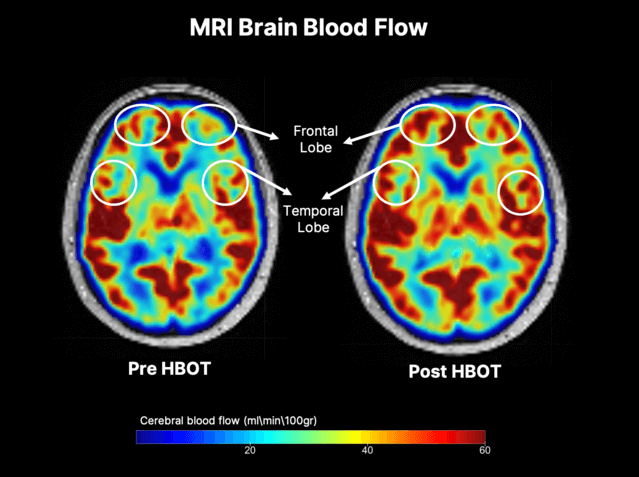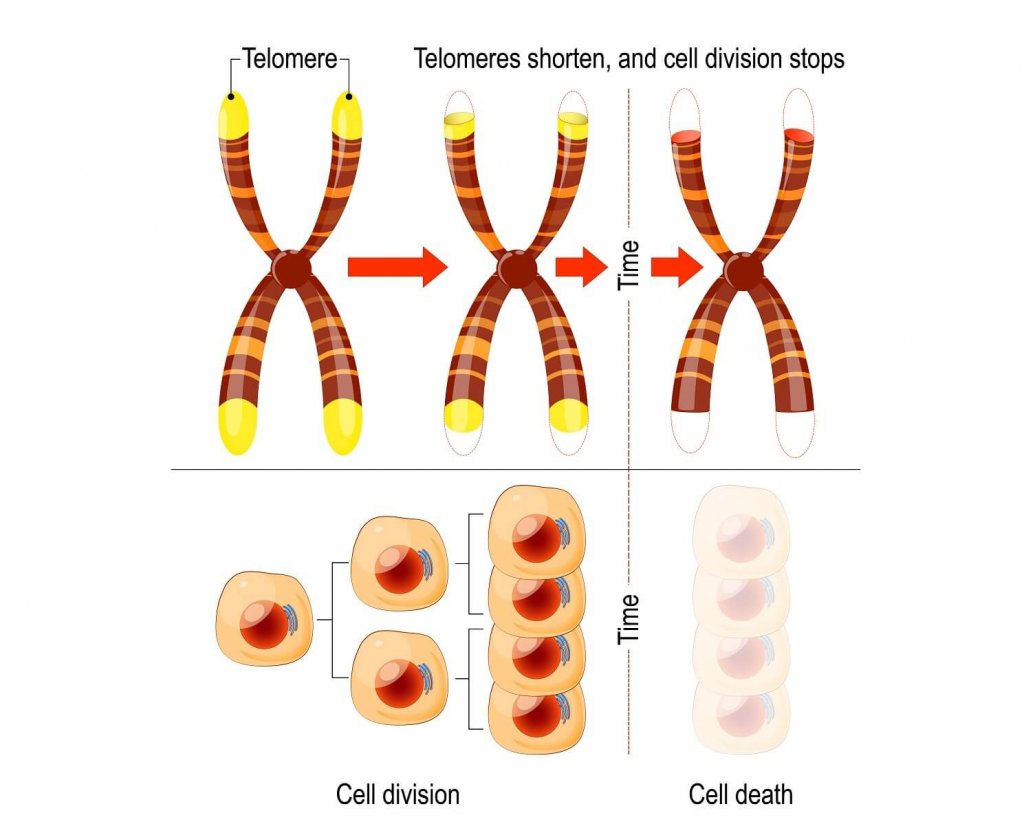Hyperbaric Oxygen Therapy Induces Cognitive Function: New Study Shows
In the past hundred years, life expectancy has risen from 55 to 80. A critical focus of medicine and healthcare in general, innovative drug therapies, medical devices, and other aspects of modern diagnostic, treatment, and recovery have all played a role in this. The emphasis is now shifting to extending ‘healthspan’ to match lifespan. There are, of course, limits to the physical capabilities of the body but one vital organ, traditionally associated with modern treatment, is proving highly responsive to new therapies. Brain functions can not only be kept from decline but even improved.
Lifestyle changes, specifically diet, physical and mental exercise, have long been recognized to increase cognitive function as we get older. Foods, fitness machines and applications abound explicitly aimed for the older generation. But the elixir of a drug or other therapies that significantly fight age-linked cognitive decline has so far proved elusive.
A recently published study by researchers from Israel has shown that Hyperbaric Oxygen Therapy (HBOT) is emerging as an essential therapy in reversing an age-related decline in cognitive function.
HBOT as an enhancer of brain function
Dr Shai Efrati, Dr Amir Hadanny and a team at the Sagol Center for Hyperbaric Medicine and Research at Shamir Medical Center, lead researchers of a new study published in the peer-review journal, Aging, demonstrated the benefits of an HBOT therapeutic protocol created at the Shamir Medical Center.
The study was a collaboration between the Sackler School of Medicine and Sagol School of Neuroscience at Tel Aviv University.
The study was the first controlled clinical and randomized trial exploring the effect of HBOT on cognitive functions in fit ageing adults. It determined that HBOT was especially beneficial for the participants in improving comprehensive cognitive functions: attention, information processing speed and executive functions.

HBOT is emerging as an essential therapy in reversing an age-related decline in cognitive function.
HBOT’s role in reversing Age-Related Cognitive Decline
Dr Efrati issued a statement marking the publication of the study, in which he underlines the consequences and concerns related to decline in cognitive and functional ability in highly-developed societies:
“Major research efforts around the world are focused on improving the cognitive performance of the so-called ‘normal’ ageing population,” Dr Efrati said. “In our study, for the first time in humans, we have found an effective and safe medical intervention that can address this unwanted consequence of our age-related deterioration.”
Dr Hadanny added the treatment has now been in use for several years and scientists have begun to comprehend how brain function can be restored with HBOT.
“In the past, we have demonstrated HBOT’s potential to improve/treat brain injuries such as stroke, traumatic brain injury and anoxic brain injury (due to sustained lack of oxygen supply) by increasing brain blood flow and metabolism,” Dr Hadanny concluded: “This landmark research could have a far-reaching impact on the way we view the ageing process and the ability to treat its symptoms.”
Mechanism of Hyperbaric Oxygen Therapy
Though the brain accounts for only 2% of body mass, it utilizes over 20% of an individual’s oxygen intake, much of the cause of a decline in physical and cognitive functioning can be ascribed to a decrease in efficiency of oxygen processing associated with ageing.
The HBOT protocol targets this problem by placing patients in a pressurized suite where they breathe 100% oxygen. This raised oxygen in the body tissue by between 10 to 15 times above normal. Not only do overall oxygen levels increase, but the fluctuations in the oxygen levels in the body leads to the release of growth factors and stem cells that promote healing.
Conclusions on oxygen and brain function
The study enrolled sixty-three healthy, vigorous adults who were subjected to HBOT for two hours a day, five days a week, for three months. Their cognitive function was measured by using a comprehensive series of computerized cognitive appraisals. Cerebral blood flow was quantified by using a magnetic resonance imaging technique that observes the journey blood takes through the organs and tissues, known as brain perfusion.

Amongst the essential conclusions of the analysis was the correlation between the above-noted improvements and cerebral blood flow to different areas of the brain.
The study swells the mass of data regarding the efficacy of HBOT in generating brain function. Noticeably, the combination of pure oxygen and higher pressure led to increases in tissue oxygenation whilst simultaneously focusing on pressure-sensitive genes. Combined, this enhanced and restored tissue metabolism. This was the first time that such benefits had been observed in healthy patients as previous studies had focused on patients with cerebral impairments due to a range of conditions.
HBOT and reversal of cognitive decline in ageing
The improvements noted in the participants’ attention and cognitive processing speeds, possibly because of amplified blood flow to the brain. HBOT enhanced cerebral blood flow and regenerate brain cells and blood vessels in individuals with no brain damage. Previous studies had concentrated on the benefits to post-stroke, traumatic and anoxic brain injury
These improvements in overall cognitive function were still observable six months after treatment, Dr Efrati, writing in Psychology Today, proposed that the technique might even reverse damaged brain tissue. He further noted that this would be the first time an effective medical intervention had been observed to reverse age-related cognitive decline.
“Most drugs and interventions are at best slowing the expected decline,” he said. “For the first time in humans, we have discovered a way to regenerate the ageing brain — as can be seen by brain MRI — and enable us to gain back the cognitive function of our younger selves.”
The Aviv Clinics, JLT, Dubai U.A.E. is now using this very protocol to stimulate cognitive enhancement in healthy ageing adults.
Breakthrough Study Show Hyperbaric Oxygen Treatments Helps Stop Biological Aging
A landmark study from researchers in Israel has found that hyperbaric oxygen therapy (HBOT) improves two key biological signs of aging in humans – the first study to ever make this finding. The research shows it’s possible to target the aging process at the basic cellular-biological level. This breakthrough in biology of aging research provides scientists a new foundation for investigating ways to slow the aging process.
Published in the peer-reviewed journal Aging, the study involved patients aged 64 and older who went through a series of HBOT treatments. Blood tests taken over the course of the study showed hyperbaric oxygen treatment improved two common signs of biological aging – a shortening of telomeres on chromosomes and the accumulation of senescent cells.
The significance of this is difficult to overstate. Telomeres are nucleotide sequences that protect the ends of chromosomes from deterioration or fusion with other chromosomes. A shortening in their length of about 20 to 40 bases per year is associated with serious life-threatening illnesses. Stopping and reversing telomere shortening has long been considered a key to slowing biological aging.
Senescent cells inhibit cell proliferation. The accumulation of senescence cells contributes to age-associated conditions and illnesses. Eliminating them can improve those conditions and illnesses, according to past animal studies.
The “Holy Grail” of the Biology of Aging
The new study is part of an ongoing comprehensive aging research program in Israel. A previous study, released earlier in 2020, showed that HBOT also improves cognitive function.
“After dedicating our HBOT research to exploring its impact on the areas of brain functionality and age-related cognitive decline, we have now uncovered for the first time in humans HBOT’s biological effects at the cellular level in healthy aging adults,” Dr. Shai Efrati, director of the Sagol Center for Hyperbaric Medicine and Research at the Yitzhak Shamir Medical Center and a co-author on the study, said in a news release.
Efrati called telomere shortening “the ‘Holy Grail’ of the biology of aging” and noted that researchers are exploring many pharmacological and environmental interventions in the hope of enabling telomere elongation.
“The significant improvement of telomere length shown during and after these unique HBOT protocols provides the scientific community with a new foundation of understanding that aging can, indeed, be targeted and reversed at the basic cellular-biological level,” said Efrati, who also holds an associate professor position at the Sackler Faculty of Medicine and the Sagol School of Neuroscience at Tel Aviv University.
How The Study Was Conducted
Efrati co-authored the study with Dr. Amir Hadanny, Chief Medical Research Officer of The Sagol Center for Hyperbaric Medicine and Research. The two focused on testing the impact of HBOT on telomere length and senescent cell concentrations in a non-pathological, aging adult population.
Efrati and Hadanny conducted the prospective trial with 35 healthy, independent adults. None of the patients made any changes to their lifestyle, diet or medication during the study. Each received 60 daily HBOT sessions over the course of 90 days.
Whole blood samples were collected before treatment and again at the 30th and 60th session. Their blood was checked again one to two weeks following the last HBOT session to assess peripheral blood mononuclear cells (PMBCs) telomere length and senescence.
The study found that certain HBOT protocols induced regenerative effects.
Some telomeres increased by more than 20% in length, while senescent cells decreased in number by as much as 37%.
Dr. Hadanny said the pioneering study has
“opened the door for further research on the prolonged cellular impact of HBOT to reverse the aging process.”
He said that up until the study, only lifestyle modifications and intense exercise showed the ability to slow telomere length shortening.
“What is remarkable to note in our study is that in just three months of HBOT, we were able to achieve such significant telomere elongation – at rates far beyond any of the current available interventions or lifestyle modifications,” said Dr. Hadanny.

Dr. Efrati is medical advisor to Aviv Scientific LTD, which offers HBOT treatments, cognitive and physical training and nutritional coaching to enhance brain and body performance at the at the Aviv Clinics, JLT, Dubai U.A.E.
For more information, or to schedule a consultation, contact the clinic.